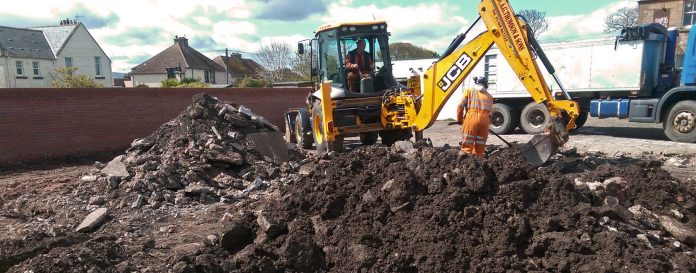In the past fortnight there has been a marked period of activity across the archaeological community particularly related to the announcement of a new Neighbourhood Planning and Infrastructure Bill, made in the Queen’s speech. From paid archaeologists, to volunteers, students, county societies, community groups, and generally interested individuals, people who value archaeology recognised a potential threat and made their voices heard in their thousands.
Informing Government
The Chartered Institute for Archaeologists (CIfA), the Council for British Archaeology (CBA), and the Association of Local Government Archaeological Officers: England (ALGAO) take these issues very seriously. Each organisation is engaged in advocating for archaeology as part of its daily business. We work collectively to inform decision-makers, and generally raise the profile of archaeological issues.
The announcement of the Neighbourhood Planning and Infrastructure Bill was one which had been anticipated by CIfA, CBA, and ALGAO, although there had been no prior indication what measures the Bill would contain. Since the announcement we have been collectively pursuing more detailed information about the Bill, have written to Ministers, and produced briefings for wider stakeholders.
Last week CIfA, CBA, and ALGAO – facilitated by Historic England – met with officials from the Department of Communities and Local Government (CLG), and Culture, Media and Sport (CMS). The meeting discussed the proposals outlined in the Bill, specifically, the nature and intent of plans to change the way in which pre-commencement conditions are used in the planning process. At the meeting it was stressed by CLG officials that archaeology was not a target of the reforms on pre-commencement conditions.
The meeting allowed for the government’s actual intentions to be explored and potential unintended impacts to be probed. Of course, despite these positive assurances, we remain cautious about the direction of the Bill and its potential to affect archaeology and will continue to closely monitor developments and advise government, as the Bill progresses.
Wider threats and continued need for action
The Bill, however, is only one aspect of a wider planning reform agenda which is having a clear negative effect on the protection of archaeology through the planning system. Recent government reforms have made changes to the planning system in a variety of ways which have, are, or will make it harder for archaeological protections to be maintained. For example;
- By expanding permitted development, and introducing ‘permission in principle’ more developments are being enabled which could be granted without adequate archaeological assessment, leading to fascinating sites and finds being lost to the public.
- By putting greater pressure on local authority performance, and cutting resources, there is a greater likelihood that corners will be cut, or standards not met – despite the hard work and dedication of archaeological staff supporting the planning system.
- By promoting the outsourcing of planning applications, early consultation with developers by local archaeology specialists is likely to be restricted.
In this context, the reaction to the Neighbourhood Planning and Infrastructure Bill would appear to us to be a symptom of decreasing trust in the Government’s ongoing growth agenda and its ability to streamline regulation and stimulate growth without harming the historic and natural environment.
It is becoming increasingly clear that the planning system is no longer working in the interests of archaeology, and that current reforms are – whether intentionally or not – contributing to a weaker and poorer set of protections for the historic environment, which in turn is leading to unsustainable development – achieved at too high an environmental cost.
CIfA, CBA, ALGAO:England and wider colleagues in the historic environment sector will continue to advocate for archaeology on behalf of the archaeological community and wider public and will continue to press these issues with all available effort.
We welcome communication, and continued action from individuals to help promote these issues to politicians, and the media.



Follow the Local Heritage Engagement Network (LHEN), and find out what you can do to keep the pressure on Government and ensure that archaeology is protected. You can find advice on the LHEN pages here.

